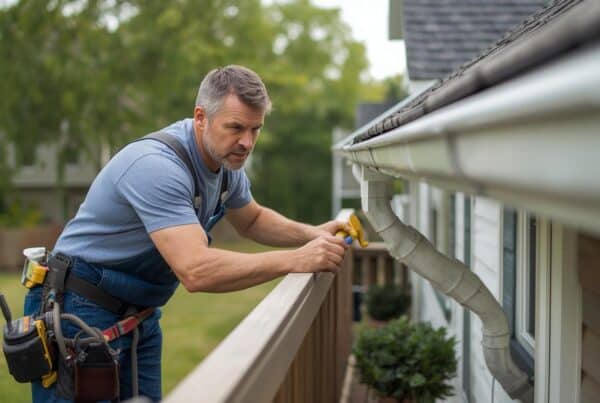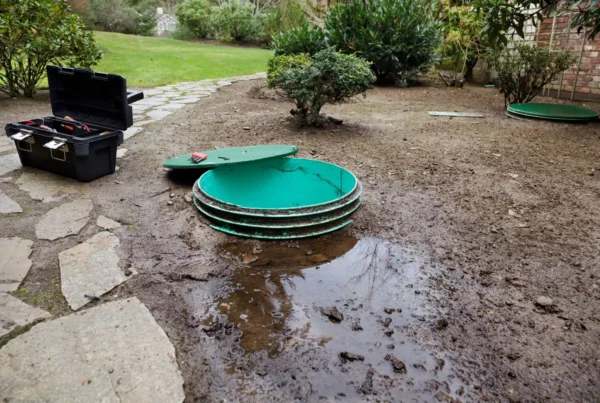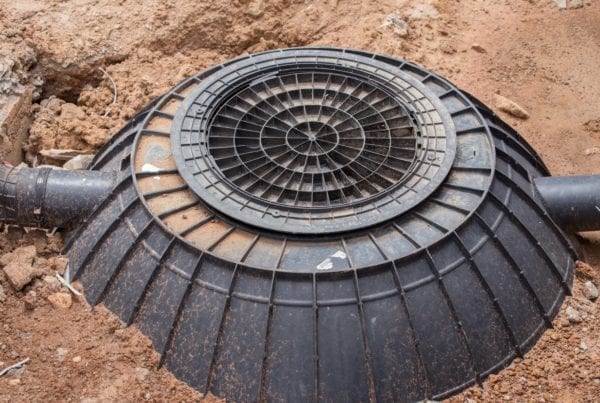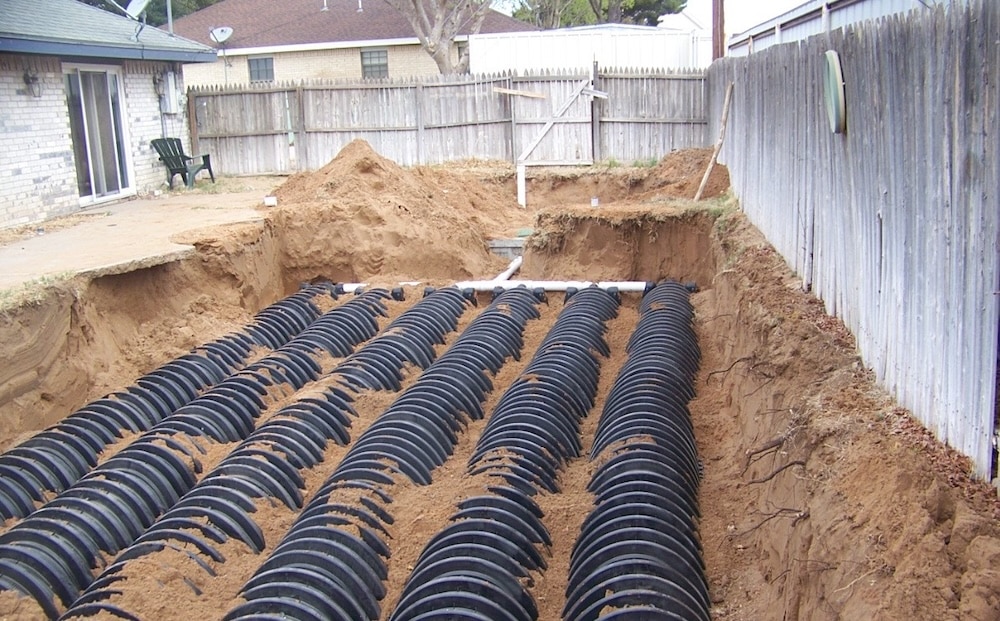
If your home runs on a septic system, it’s on you to keep it in working order. And while that might sound like a hassle, the truth is: the regular maintenance cost is a lot less than a surprise repair or full septic system failure.
Let’s walk through the most common septic system defects, how much they cost to fix or maintain, and what you can do to prevent expensive issues before they happen.
Why Septic System Maintenance Matters
Your septic system handles all the wastewater that comes from your sinks, showers, toilets, and laundry. It sends that water into a buried tank, where solids settle to the bottom and the rest filters out into the ground.
When everything’s working right, you don’t have to think about it much. But when things go wrong? You’ll notice—and probably not in a good way.
Ignoring your system can lead to clogged pipes, foul smells, soggy patches in the yard, or worse—sewage backups in your home. Regular maintenance helps you avoid all that and can save you from repairs that run into the thousands.
According to the EPA, keeping up with septic maintenance is one of the easiest ways to prevent system failure and protect your property value.
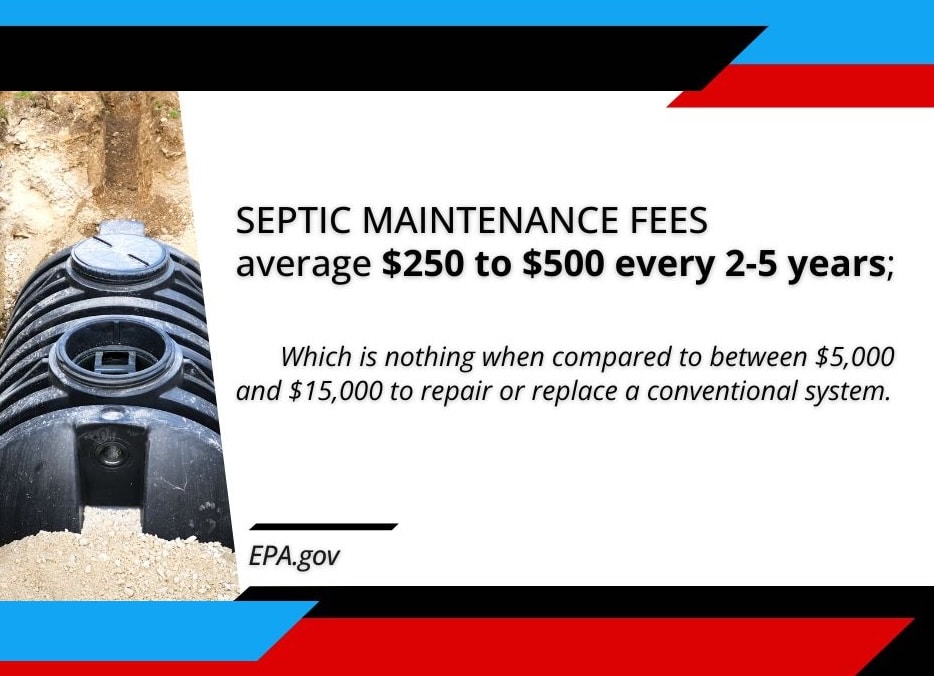
Most Common Septic System Defects
Septic system issues usually don’t happen overnight. They build up slowly, often with small warning signs that are easy to miss if you’re not looking for them. Here are some of the most common problems homeowners run into:
- Cracked or broken pipes – Underground lines can shift, crack, or break over time, especially if they weren’t installed properly or if tree roots push into them.
- Corroded or damaged tanks – Septic tanks can wear out, rust, or get holes, especially older ones made from steel or concrete.
- Clogged or failing drain fields – When too much water enters the system too fast, or solids aren’t properly filtered, your drain field can get overloaded and stop working.
- Loose or missing baffles/lids – These parts help control how wastewater flows through your tank. If they’re broken or missing, your system won’t treat waste effectively—and it could become a safety hazard.
Warning signs to watch for:
- Slow drains
- Gurgling toilets
- Sewage smells inside or outside
- Pooling water in your yard
- Greener grass patches over the drain field
What Affects Septic System Maintenance Cost?
Septic system maintenance isn’t one-size-fits-all. Costs can vary depending on several factors, like:
- How often your tank needs pumping – Most households should pump their tank every 3–5 years. That usually costs between $300 and $600.
- The size and age of your system – Larger or older systems might need more frequent checkups or repairs.
- The type of system you have – Some systems, like aerobic treatment units, have more parts and require more frequent maintenance.
- Your soil type and location – Sandy soil drains differently than clay or rocky soil, which affects how your system works and how often it needs attention.
- How well it’s been maintained over time – A neglected system often leads to bigger, more expensive issues down the line.
The good news? Preventative care is almost always cheaper than repairs.
How Much Do Septic Repairs Cost?
Here’s a quick look at what it might cost to fix some of the more common septic system problems:
| Issue | Estimated Cost |
| Cracked pipe repair | $200–$1,500 |
| Drain field replacement | $3,000–$10,000+ |
| Septic tank repair | $1,000–$3,000 |
| Full tank replacement | $3,000–$8,000+ |
| Baffle or lid repair/replacement | $150–$600 |
As you can see, small issues are much easier—and cheaper—to handle. But if they go unchecked, they can snowball fast. That’s why regular inspections are a smart investment.
Recommended Maintenance
In addition to pumping your tank and watching for signs of damage, here are some easy ways to keep your septic system in good shape:
- Be careful what you flush. Avoid grease, baby wipes, and harsh cleaners. Even products labeled “flushable” can cause clogs.
- Spread out your water use. Don’t run multiple loads of laundry back-to-back. Too much water at once can overwhelm the system.
- Keep records. Note when your tank was pumped and what any inspections found. This helps catch patterns over time.
- Protect your system from damage. Don’t drive or park over the tank or drain field, and don’t plant trees too close—roots can cause serious problems.
When to Call a Professional
Not sure if your septic system is working the way it should? Here’s when to bring in an expert:
- You’ve noticed strange smells, slow drains, or gurgling noises
- It’s been more than 3 years since your last inspection
- You’re buying or selling a home with a septic system
- You just want to be proactive and avoid major costs down the road
At All Coast Home Inspections, we offer professional septic system inspections that help you catch small issues early and avoid costly surprises.
We serve homeowners all around the greater Houston area and can give you a clear picture of your system’s health.
Conclusion
Septic system maintenance doesn’t have to be complicated or expensive. By staying on top of inspections and making small adjustments to how you use your water and waste systems, you can avoid most of the big issues homeowners face.
If you’re seeing signs of a problem—or if it’s just been a while—schedule a septic inspection with All Coast Home Inspections. It’s one of the simplest ways to protect your home, your yard, and your budget.

